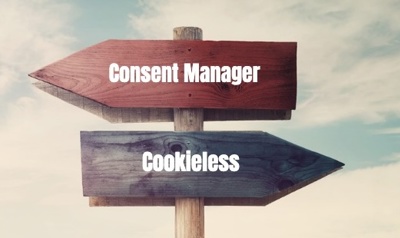Differences between Snoobi's cookieless analytics and Google consent management
- User Privacy and Consent Compliance:
- Cookieless Analytics: Cookieless analytics solutions prioritize user privacy by collecting data without relying on cookies or other tracking technologies. This approach is in line with evolving data protection regulations like GDPR and CCPA, which require explicit user consent for tracking and data collection.
- Google Consent Management: While Google Consent Mode helps websites manage user consent for various Google services, it may still involve the use of cookies for tracking and data collection. This can pose challenges in terms of compliance with stringent privacy regulations.
- Reduced Dependency on Cookies:
- Cookieless Analytics: Cookieless analytics solutions don't rely on cookies. Cookies can be blocked or deleted by users, resulting in incomplete data. The cookieless approach reduces the risk of data loss due to cookie-related issues.
- Google Consent Management: Google Consent Mode primarily deals with obtaining user consent for Google services, which often involve the use of cookies. This dependency on cookies can be a limitation in situations where users are increasingly blocking or deleting cookies.
- Cross-Device Tracking:
- Cookieless Analytics: Cookieless analytics solutions can use alternative methods to track user interactions across devices. While identifying a single user is not possible due to privacy, behavior can be analysed on an organization-level. This can provide a more comprehensive view of visiting company behavior without relying on persistent cookies.
- Google Consent Management: Google Consent Mode focuses on managing consent for Google services, and its ability to track users across devices may depend on Google's own tracking technologies, which might be limited by user consent restrictions. Google doesn't recognize the visiting companies.
- Vendor Neutrality:
- Cookieless Analytics: Cookieless analytics solutions are not tied to Google services or any other marketing-driven organization. The data in Snoobi Analytics is only shared with the website owner.
- Google Consent Management: While Google Consent Mode helps manage Google's services, it may encourage dependency on Google's ecosystem, limiting flexibility in choosing other analytics providers or technologies.
- Future-Proofing:
- Cookieless Analytics: As privacy regulations and user preferences continue to evolve, cookieless analytics solutions are designed to adapt to changing requirements without relying heavily on tracking technologies that might become less effective or acceptable in the future.
- Google Consent Management: Google Consent Mode's effectiveness is tied to Google's specific services and technologies, potentially making it less adaptable to changes in the digital landscape.
In summary, although both solutions have their value, cookieless analytics can be considered better than Google Consent Management in terms of user privacy, reduced dependence on cookies, vendor neutrality, and future-proofing data collection and analytics efforts. However, the choice between the two depends on your specific needs and the extent to which you rely on Google services for your website's analytics and tracking.
And of course, if your marketing relies on the Google infrastructure, there is always the simple option to use both analytics services at the same time and benefit from both.
Google and Google Consent Mode are trademarks of Google LLC.
 FI
FI

